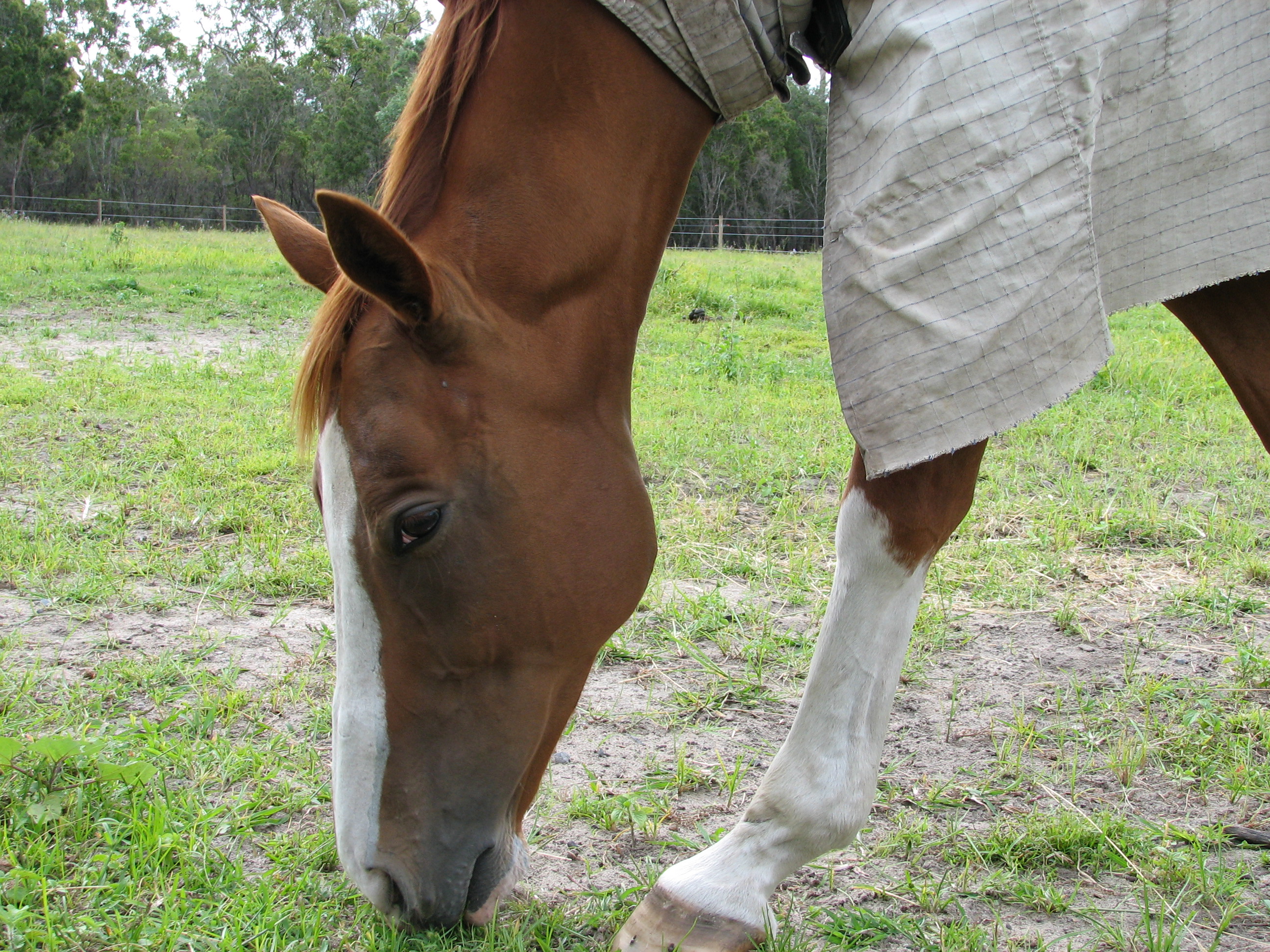Five Most Common Horse Diseases
 1. Colic 1. Colic
What it is: Acute gastrointestinal distress which can be
caused by anything from impaction in the intestines to a stomach ache from eating too much or too
fast.
Symptoms: Biting the stomach, rolling in the stall, refusal to eat, tacky gums and stilled or lessened movement
in the stomach.
Treatment: Treating colic requires a two pronged approach: first you must provide pain relief, and then you can
treat the cause. Mild pain can often be controlled iwth non-narcotic pain killers and these should be tried
first unless the horse is rolling around in agony. Consider products that offer both an analgesic and an
antispasmodic. Try to avoid any drug that can sedate the animal as the stress and shock involved with colic can
make the introduction of a sedative dangerous. Once your animal's pain is under control, call a Vet. There are
a number of reasons your horse may be in pain, some of which require surgery. Only a licensed Vet with
experience treating livestock should make that call.
2. Laminitis
What it is: A disease of the hoof that
inflames the digital laminae making it difficult for the horse to walk without pain.
Symptoms: Favoring the affected hoof, profuse sweating, a full work up at the vet must be done to fully
identify a case of laminitis.
Treatment: First, call your Vet. Laminitis should always be treated as an emergency. Then have the shoes
removed from your horse. Your vet will likely prescribed an anti-inflammatory and you will want to rest your
horse. Keeping the hoof clean and preventing bacterial infection while reducing swelling are very important so
it is imperative that you keep hooves and stalls clean while your horse heals.
3. Founder
What it is: Founder is not so much one disease
but rather a complication of a disease allowed to go without treatment for a long time. Most horses with
Founder are also neglected.
Symptoms: Founder is caused by the sinking of the coffin bone through the hoof frog making standing and
movement nearly impossible.
Treatment: Call your vet immediately. Remove all food from your horse and soak the infected hoof in cold water
while you wait for the vet to arrive. Keep them in a softly bedded stall and encourage them to lie down and
stay off their hoof. As with laminitis, treatment with anti-inflammatories and antibiotics and cleanliness are
important. Once the hoof is on the mend, speak with your farrier about corrective shoeing to prevent it
happening again.
4. EPM
What it is: Equine protozoal myeloencephalitis is
found most commonly in the southern states and is a protozoal disease that causes neurological problems.
Symptoms: Moving as though drunk, muscular atrophy
Treatment: All treatments for EPM are drug related and require veterinary care. If you suspect your horse is
suffering from EPM, contact your veterinarian immediately.
5. Equine Influenza
What it is: Horse flu, similar to
human flu
Symptoms: Fever, dry cough, increased mucus production, despondency
Treatment: Equine influenza is high contagious, so treatment should be started immediately as to avoid
infecting an entire herd. Stop working your horse immediately as the symptoms can affect the respiratory
system, and keep them out of both bad weather and shade. Because the disease is caused by a virus, there is no
direct antibiotic for fighting it; indeed the best methods of overcoming the illness are rest and recovery.
Horses should be given a minimum three weeks rest and at least one week of rest for every week they run a
fever. Fresh air is important, so you should avoid having dusty bedding and feed. Vaccines are available to
help prevent outbreaks.
Related Articles
Breaking a Leg- What It Means For Your
Horse
Deadly Equine Diseases
Tips for Keeping Flies Under
Control
Horse Inspection Checklist
Five Most Common Horse Diseases
How to Spot a Malnourished Horse
Top 10 Most Poisonous Plants for Horses
Feeding and Rebuilding a Malnourished
Horse
Helping a Horse Living with Cushing's
How to Treat Abscesses on Your Horse
Colic and Your Horse
Confirming That Your Horse Has Rabies
Helping a Pregnant Mare
Handling a Rattlesnake Bite to Your Horse
Being Aware of Tetanus and Your Horse
Preventing Thrush in Your Horse
|